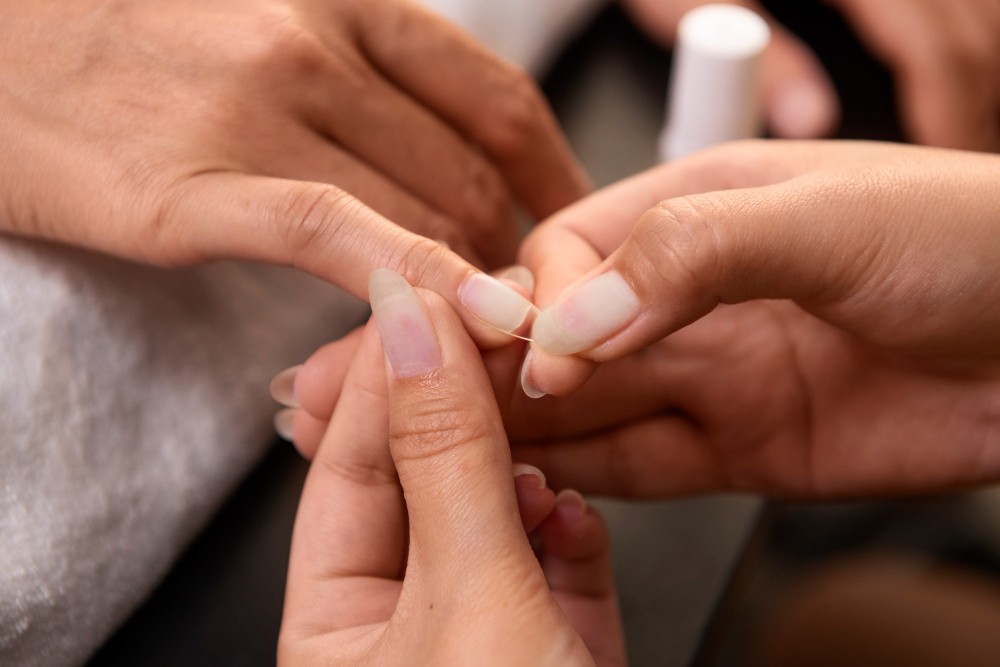Daily calorie intake and expenditure have a close relationship with weight loss. If you want to lose weight, you have to burn more calories than the amount of calories you get through your food intake every day. You can also eat foods with fewer calories than your daily calorie needs. This is referred to as a calorie deficit.
To create a calorie deficit, you can reduce your calorie intake through diet, increase physical activity to burn more calories or a combination of both.
Risks of Reducing Calorie Intake Excessively
If you want to lose weight, you can reduce the amount of food you eat each day. However, over-reducing your daily calorie intake and eating a very low-calorie diet without a doctor's supervision can have negative effects on your body, including:
- Rapid weight loss and increased risk of gallstone formation
- Lack of nutrients such as vitamins and minerals
- Slowing down the body's metabolic rate
- Experiencing digestive problems
- Feeling weak
- Menstrual problems
Daily Calorie Needs
When you want to lose weight, you need to know your daily calorie needs to know how much of a calorie deficit is safe to have each day. You don't want to eat too little or do too much exercise. Daily calorie needs can vary depending on your age, level of daily physical activity, body composition, health condition, and any medications you are currently taking.
An adult man generally needs about 2,200-3,000 calories per day, while an adult woman needs about 1,600-2,200 calories per day. Your body can burn more calories the more active you are, and burn fewer calories if you have a sedentary lifestyle. Growing children and teenagers also generally require more energy.
How Many Calories To Burn to Lose Weight?
As mentioned earlier, a calorie deficit can be achieved when you engage in exercise or physical activities that help burn calories, reduce your daily calorie intake, or a combination of both.
According to experts, for weight loss to last, the ideal calorie deficit is a reduction of about 10-20% of your total daily energy expenditure (TDEE). This is the most realistic approach and can provide a safe weight loss over a long period.
You can use the Mifflin-St Jeor formula to figure out how many calories you need to get each day. This formula uses the body's metabolic rate at rest and daily activity level. Here's the formula:
Resting metabolic rate (RMR) x activity level = calories needed to maintain body weight
Resting metabolic rate formula:
- Male RMR: (9.99 x body weight in kg) + (6.25 x height in cm) - (4.92 x age) + 5
- Female RMR: (9.99 x body weight in kg) + (6.25 x body height in cm) - (4.92 x age) - 161
Daily activity level:
- Sedentary lifestyle, little or no activity: 1,2
- Slightly active, light activity 1-3 days per week: 1,375
- Moderately active, moderate activity 3-5 days per week: 1,55
- Very active, doing vigorous activity 6-7 days per week: 1,725
- Very active, doing very strenuous activity: 1,9
For example, if you are a 30-year-old female weighing 68 kg and 168 cm tall, with a sedentary daily activity level, the formula is as follows:
Mifflin-St Jeor: Female RMR x daily activity level
[ (9.99 x 68 kg) + (6.25 x 168 cm) - (4.92 x 30 years) - 161 ] x 1.2 = 1420.72 x 1.2 = 1704.864 calories
So, if you want to lose weight, you can reduce your daily calorie intake by 10-20 percent from the total calories calculated from the formula above. You can also eat as usual and increase your daily activity level, or combine the two.
Activities to Burn Daily Calories
Each person's calorie burn can vary when doing the same activity. People with a larger body weight tend to burn more calories than people with a lower body weight.
There are many physical activities that can help burn calories, including:
- Running or jogging
- Cycling
- Swimming
- Gymnastics or aerobics
- Jumping rope
- Strength training at the gym
- Yoga
- Zumba
- High interval training (HIIT)
- Cardio training in water
A combination of strength training such as weight lifting as well as cardio training and a healthy diet can help you achieve your desired healthy weight. A balanced diet is also important for achieving and maintaining a healthy weight. If you need medical advice or consultation, you can either visit a doctor or make use of the consultation features that are available in the Ai Care application by downloading the Ai Care application from the App Store or Play Store.
Looking for more tips and tricks for health, first aid, and other home remedies? Click Here!
- dr. Siti Marsiana Meriam
Katey Davidson, MScFN, RD, CPT (2023). How Many Calories Do I Burn in a Day?. Available from: https://www.healthline.com/health/fitness-exercise/how-many-calories-do-i-burn-a-day#daily-calorie-burn-by-intent
Caroline Kaufman, MS, RDN (2022). 4 Ways Low-Calorie Diets Can Sabotage Your Health. Available from: https://www.eatright.org/health/wellness/weight-and-body-positivity/4-ways-low-calorie-diets-can-sabotage-your-health
NHS UK (2019). What should my daily intake of calories be?. Available from: https://www.nhs.uk/common-health-questions/food-and-diet/what-should-my-daily-intake-of-calories-be/
Paul Frysh (2023). Caloric Deficit: What to Know. Available from: https://www.webmd.com/diet/calorie-deficit
Kirsten Nunez (2023). 12 Exercises That Burn the Most Calories. Available from: https://www.healthline.com/health/what-exercise-burns-the-most-calories











